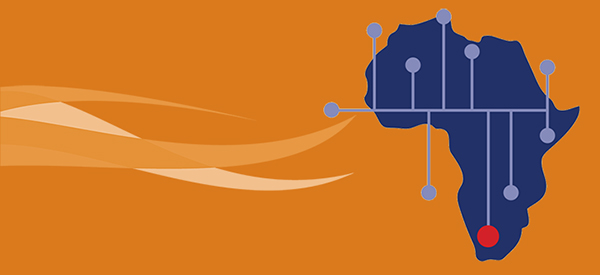
Producing over 40% of teachers in South Africa
The College of Education (CEDU) has reached significant milestones since embarking on an agenda of curriculum transformation. Prof Phaladi Sebate, the Executive Dean of CEDU, welcomed attendees at the seminar on indigenous knowledge, which was held on 21 May 2021, and noted the importance of Africa Month and the relevance of the seminar. Prof Meahabo Magano, Manager of Teaching and Learning in CEDU, noted in her opening remarks that higher education is central to the production of official and legitimate knowledge.

The construction of knowledge and transformation is key in discourses on indigenous knowledge systems. In the recurriculation process, CEDU had a clear mandate to infuse epistemologies in all programmes. The college introduced a series of seminars to ensure that the notion of transformation would become a reality in teacher education programmes. At these seminars, academics in CEDU made presentations on the inclusion of indigenous knowledge in their modules. External experts were invited to the seminars so that the college could get a broader understanding of indigenous knowledge in various disciplines.
In April this year, CEDU focused on mathematics education and the inclusion of indigenous knowledge in different modules. Dr Piera Biccard and Mathomo Moila demonstrated the inclusion of indigenous knowledge in a meticulous way, focusing on the history of mathematics in Africa. Moila demonstrated how mathematics teachers can use indigenous artefacts like calabashes and the shapes used to decorate them to teach even in the current era. Other presenters were Prof Koliswa Moropa and Dr Shoba from the Language Unit, Dr Cily Tabane from the Curriculum Transformation Unit and Dr Itumeleng Setlhodi, Acting Head of Quality Assurance and Enhancement in CEDU.
On 21 May, a follow-up seminar was held to deepen the epistemologies in the science subjects, such as environmental education, language and indigenous knowledge systems (IKSs). The keynote address was given by Prof Catherine Odora Hoppers, a former SARChI Chair in Development Education at Unisa and currently a professor extraordinarius (Unisa) and a professor of education (Gulu University, Uganda). Hoppers’s presentation focused on indigenous knowledge and the integration of knowledge systems. She demonstrated the inadequate response of Western knowledge to the depletion of natural resources. Without mincing words, she argued that natural resources needed to be protected for the present and future generations. "For their part, indigenous knowledge systems represent both a national heritage and a national resource which should be protected, promoted, developed and, where appropriate, conserved," she said. She further pointed out that IKSs are not fixed or static – they should be critically evaluated.
The reality of how CEDU academics managed to infuse indigenous knowledge in the natural sciences and environmental education was demonstrated by Dr Matlala Makokotlela and Prof Saul Shava. Makokotlela elaborated on the history of medicinal plants, how rainwater should be harvested and how learners should be taught about avoiding artificial fertilisers and using natural plant leaf debris and cow dung instead. In covering scientific aspects of indigenous knowledge, Shava pointed out that taboos played a significant role in nature conservation, for example, the timing of harvesting of wild fruit trees, the seasonal hunting of birds and other animals, fishing and the harvesting of medicinal plants. He elaborated on sacred plant and animal species, sacred forests or woodlands, and sacred river sites, pools and wetlands.
In addressing language issues and IKSs, the newly appointed Director of Language Services, Dr Mpho Rakwena Monareng, noted that a monolithic way of knowledge construction deprives people of knowledge of who they are. Monareng explained how the phonic way of learning language, rather than a semantic approach to learning complete words, leads to rote learning. This is problematic, especially for foundation phase learners. He challenged the audience by posing the question: How can we create an alternative view to the process of knowledge creation? Overall, the seminar served to highlight salient factors in relation to indigenous knowledge and the content of various subjects.
* Submitted by Dineo Horner, Acting Marketing and Communications Specialist, College of Education
Publish date: 2021-06-01 00:00:00.0